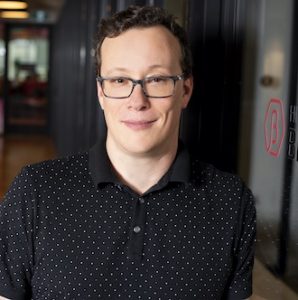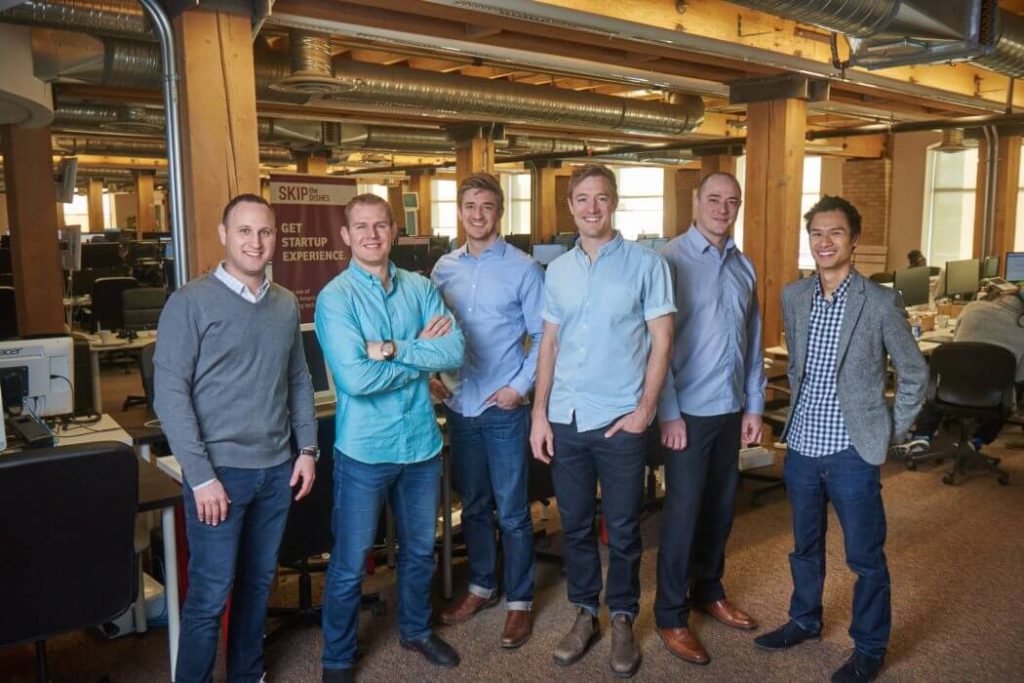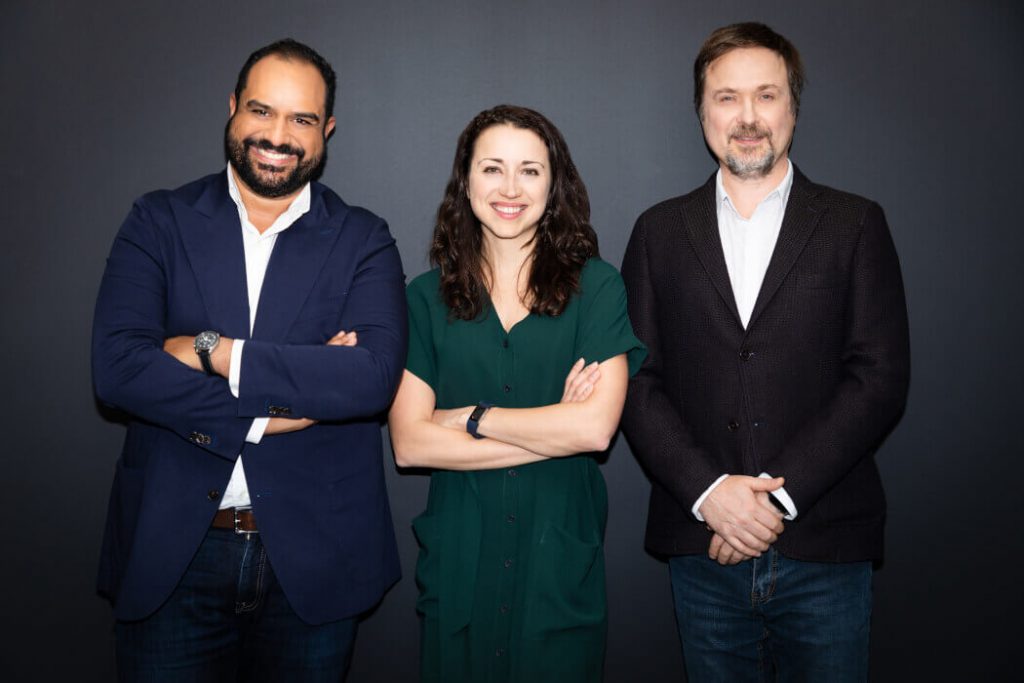Over the last seven years, the number of global venture studios has increased by 625 percent, and Canada is no exception to this growth.
This year alone saw the creation of healthtech venture studio Launchit in Hamilton, Ont., and new funds by Prairies’-based studio Harvest Builders and Montréal’s Diagram Ventures.
While the studio model is still considered rather young in Canada, it has exploded on the global tech stage, which has led some to argue that it is an appealing strategy for company creation.
“Five [or] seven years ago, people were like, ‘I don’t like this, this is not real venture.”
“Five [or] seven years ago, people were like, ‘I don’t like this, this is not real venture,” Francois Lafortune, CEO and co-founder of Diagram Ventures, told BetaKit in an interview earlier this year. “Now, some of the best brand name funds in the world do this.”
The studio model is often likened to an early-stage incubator or accelerator, yet venture builders take unique approaches to validating, forming, and scaling companies. Venture studios essentially play the role of the startup bricklayer: creating the team, leading the growth strategy, and providing capital to rapidly scale a company. In the last five years, Canadian studios have been responsible for several fast-scaling tech companies, including Neo Financial, Dialogue, Nesto, and Relay Platform.
A brief history
While venture studios have gained traction in the startup world over the last number of years, they’re not new. Like many forms of startup support, they can trace their origins to the early days of Silicon Valley. Idealab, founded in 1996, was one of the first to offer a studio-style approach to founding and growing companies.
It wasn’t until roughly a decade later that the venture studios grew to global prominence. Some of the early studios included Betaworks, Rocket, and FirstWave, all founded in 2007. In the following five years, several more were launched, including Atomic and Expa.
RELATED: Harvest Builders launches venture fund to build on Neo Financial, SkipTheDishes success
Expa was founded in 2013 by Uber co-founder and Canadian entrepreneur Garrett Camp. The studio both creates and invests in tech startups across many sectors and countries, and while based in the United States has been actively supporting Canadian entrepreneurs; roughly 15 percent of Expa’s portfolio is based in Canada, according to Expa’s general partner Milun Tesovic.

“What we’re finding is that Canada has a lot of talented individuals,” Tesovic told BetaKit. “As builders ourselves, we’re very attracted to talented entrepreneurs who are passionate, hungry, and really want to create great companies, and we’re finding that a lot of those individuals exist in Canada.”
“This idea of helping founders build companies has been around for a while,” said Ben Yoskovitz, founding partner of Toronto studio Highline Beta. “I think the models are just starting to take shape.”
Many studios were borne out of the playbooks that scaled successful tech companies. Highline Beta, for example, was founded in 2016 by Yoskovitz, Marcus Daniels, and Lauren Robinson, the former of whom had previously run one of Canada’s first early-stage accelerators, Year One Labs. Harvest Builders, launched in late 2019, is led by Chris Simair, co-founder of SkipTheDishes, which completed a $110 million exit in 2016.
Diagram Ventures, on the other hand, pulls support from Power Corporation, which holds stakes in a handful of significant Canadian FinTech companies, including Wealthsimple and Koho.
‘Different flavours’ of studios
Venture studios typically start from what Yoskovitz calls “day zero,” meaning pre-incorporation. The studio will begin working with a startup at its most nascent and riskiest stage, and work to validate an initial idea. This is unlike accelerators, incubators, and VCs, which often seek startups that have achieved some form of validation in their market.
Since the studio model has evolved alongside other forms of startup support, such as accelerators, incubators, and traditional VC investment, it’s key to define where venture studios stand out.
Leaders in the venture studio space that BetaKit spoke with agreed the precise model can vary between studios. “The playbooks for this sort of stuff are being written and edited at the same time,” Yoskovitz noted.
“I think part of the reason why you’re seeing a growth in venture studios is that they just work.”
– Ben Yoskovitz
“The venture studio is literally started with a blank sheet of paper and a person,” said Yoskovitz.
Although the fundamental concept of the venture studio is similar across various models, Yoskovitz said studios themselves will have “different flavours.” Some draw distinctions by classifying organizations as venture studios, startups studios, or simply venture builders. Since the model is relatively new and ever-evolving, the terminology can get blurred, and some studios use the names interchangeably.
Some studios, such as Diagram Ventures and Harvest Builders, will begin with an initial idea in-house. These organizations will work to de-risk that idea, recruit a founder, and rapidly scale. “We are basically an idea machine and a network of founders, and we do this magic to connect the right idea with the right founder,” Lafortune told BetaKit earlier this year.

Other studios, such as Highline Beta, will see external founders approach the studio with an idea and work with corporates to build these ideas into companies (though Highline Beta sometimes starts with existing studio ideas). Expa’s model allows it to internally spin up ideas or support external founders through financial and human capital.
“You get to iterate and move through ideas much quicker,” Tesovic said of Expa’s model. “When we partner up with founders, we’re not always funding just one idea with the ability to pivot into similar sectors. The benefit of our studio model is that we can explore multiple ideas at the same time.”
Equity and share structure also varies wildly across studios. Highline Beta takes roughly 25 percent equity in each company, while Diagram Ventures aims to have roughly 20 to 30 percent stake in each portfolio company.
Alex Gold, general partner of Harvest Venture Partners (Harvest Builders’ recently-launched fund), told BetaKit the studio takes a “non-prescriptive” approach to equity. He noted the share structure will differ depending on the number of founders and the market space, among other factors, but his goal is to keep founders “in the driver’s seat.”
What’s similar between most Canadian studios is many have launched their own venture funds. Harvest Builders, Diagram Ventures, Highline Beta, and Expa are all supported by their own funds, with limited partners ranging from VC firms to corporate partners.
De-risking disruption
According to a 2020 report from the studio network Global Startup Studio Network (GSSN), it takes a traditional startup 56 months on average to reach a Series A funding round. This is twice as long as a startup out of a studio, which on average, reaches the Series A stage in only 25 months.
In addition to being able to provide financing from the start, a critical step that is more or less unique to the studio is the de-risking process, which starts with early market validation. This validation usually involves market research, customer interviews, and rigorous testing.
For many venture studios, the secret sauce to validation also involves corporate entities. Highline Beta works with Fortune 1000 corporates to identify high-growth areas and co-develop startups, giving new ventures an advantage in the wider market.
“If we can get you into a corporate, and you can have them be your first customer and validate your technology, we’re setting that company up to get to the next stage,” Yoskovitz said.
Venture studios also have the benefit of a full-stack services model. Expa will offer its companies branding, product design, networking, strategic resources, operational support, and funding as part of its studio. For Daniel Domachowski, co-founder of Vancouver-based Circus, this level of support went far beyond a typical investor-startup relationship.
“A lot of other entrepreneurs that I’ve spoken to … [said] they literally just raise the money and then check in every quarter with their investor to let them know how things are going,” Domachowski told BetaKit. “It’s completely the opposite with Expa. They’re actually a part of our team.”
Simair played a very active role in the conception of Calgary-based Neo Financial, working alongside former SkipTheDishes founders Andrew Chau and Jeff Adamson. It appears that strategy paid dividends for Neo, which recently raised a $64 million Series B round from investors like Peter Thiel-backed Valar Ventures. “What we did with SkipTheDishes in eight years, we did with Neo in about eight months,” Simair said.

According to the GSSN, the industry average for a traditional investment to exit is about 6.6 years, while the average age of startups created in studios was 3.85 years at exit.
Diagram Ventures’ has seen two of its companies exit, including healthtech startup Dialogue, which completed a $100 million initial public offering earlier this year. According to Dialogue’s prospectus, Diagram still owned roughly 10 percent of Dialogue’s common shares, which Lafortune called very high for an investor that participated so early on.
The challenges
While the heads of Canadian venture studios are all quick to tout the benefits of studios, they’re also not shy about some of the unique challenges associated with the model.
One of these would be the degree of effort required to launch and scale a successful venture. Incubators and accelerators generally have the level of scale to work with dozens of companies at a time. Venture studios, on the other hand, work with far fewer startups at one time, since their form of support is more time- and resource-intensive.
Another problem is the potential downstream costs of bringing on new investors. Since studios can take as much as 30 percent of a single venture, a later-stage VC firm may not be incentivized to throw its hat in the ring. Yoskovitz noted that some investors will not even consider backing a studio-affiliated company.
“[As a venture studio], we have to make sure we get you to a place where you’ve got a team, you’ve got traction, and you’ve got enough assets in place that downstream investors are going to be excited about,” he said.
Proliferation is ‘inevitable’
Although the concept of the venture studio is still undergoing a period of evolution and stratification, it’s clear that those running Canada’s studios are bullish on its approach to streamlining the company-building process from the ground up.
“I think Canada is still discovering what the venture studio model is,” said Harvest Builders’ Gold, noting that Canada’s strong financial ecosystem for tech companies will allow these models to improve.
Yoskovitz also believes a rise in the venture studio model is “inevitable,” but noted they still need time to prove their ability to scale in the same way accelerators have.
“I think part of the reason why you’re seeing a growth in venture studios is that they just work,” Yoskovitz added. “There are so many ways of building companies, and there is no formula. This feels like a logical progression of ‘Hey, wait a second, maybe it’s just not two white guys in a garage.’”
Feature image sourced from Highline Beta.

